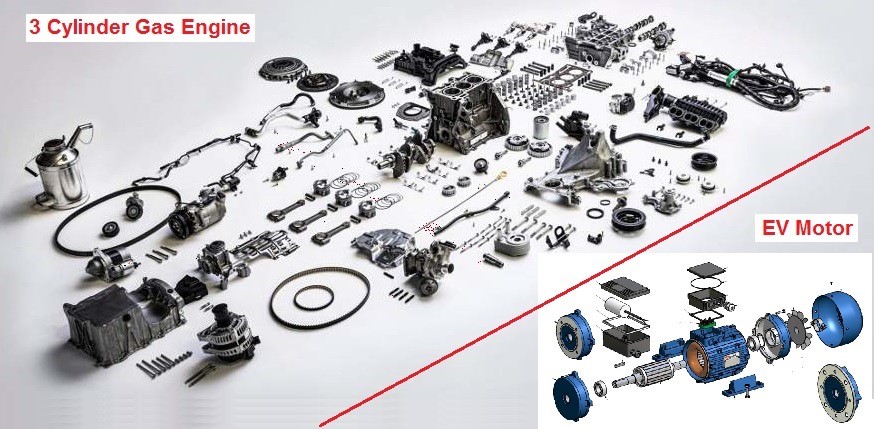Want to Save $23,000 on Your Next Vehicle? Switch to Solar + Electric Car
From Revision Energy: revisionenergy.com

Switching to electric transport leads to the next logical thing: powering those miles on sunshine. Here, SolarChampion Mark Boren recharges his Nissan LEAF off the solar panels of his Dover, NH home.
Why Electric Vehicles?
We rely on cars. Cars bring us to work, to the grocery store, to school and soccer practices, and up to camp.
As much as we love where cars may take us, very few of us love taking care of them. Maintaining and fueling vehicles is not just a headache, but also a drain on the wallet, and the planet.
Electric vehicles offer a solution to the hassles of vehicle ownership. They are cleaner, faster, and far less expensive than the traditional gasoline-powered cars, especially when powered by solar electricity.
Fewer Moving Parts = Less Stuff to Break
No more thrown belts, blown gaskets, cracked cylinder heads, or spun rods. No more oil changes.

Photo courtesy APRS. Electric vehicles are much cheaper to maintain than gas-powered vehicles because they have fewer moving parts. A typical gas-powered car has 2,000+ moving parts; a typical EV has a few dozen (Source: CNBC).
Simplicity does not mean compromise, however. EVs are incredibly speedy, with instant torque at 90% efficiency (stored energy to locomotion) compared to less than 35% for internal combustion engines. That’s largely because internal combustion engines operate at extremely high temperatures, and vast amounts of energy are lost as gas engines expel heat into the atmosphere. Plus, waste pumped out of a gas-powered car’s exhaust system contains high levels of climate-damaging greenhouse gases (among other pollutants), contributing some 30% of total climate disrupting pollution in the USA.
Even with electricity sourced from the electric grid, EVs offer both a better environmental option and economic option. Simply by swapping out gasoline for grid-sourced electricity, an EV is roughly half the cost to drive vs. a gas-powered car.
But it gets better – way better. Source your electricity with solar power, and your cost to drive is roughly one third that of a gas equivalent. The equivalent price of gasoline, called an ‘eGallon’, is about 71 cents for an EV powered by solar.
Below we compare the costs of driving and maintaining a gas-powered car vs. a 100% solar-powered one – in the course of 100,000 miles, you can save over $23,000!

In addition to fuel savings, EVs are free from many routine maintenance items that must be replaced in a gas-powered car. These include parts (spark plugs, mufflers, belts, water pumps, and starter batteries) as well as fluids (transmission fluid, engine oil, coolant, and, well, gasoline).
-
How we came up with 71 cents for a solar “eGallon”?
-
Why electric cars are safer than gas-powered ones?
-
How a move to electrification empowers an autonomous car future?
Answers and more at http://bit.ly/driveonsunshine.
This article is reprinted courtesy ReVision Energy, Maine/New Hampshire’s only Benefits (B)-Corp Certified Solar Installer, recently rated #1 in New England by Solar Power World.








Leave a Reply